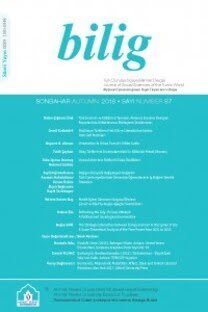Türkiye’nin Toplumsal Değişiminde Avrupa Birliği’nin Rolü
Öz Bu çalışmanın amacı, Türkiye’de siyasal, ekonomik, sosyal ve hukuk alanlarında yaşadığı değişimde AB’nin rolünü incelemektir. Çalışmada öncelikle gümrük birliğinin kurulmasından günümüze Türkiye’de kaydedilen ilerleme ele alınmış, ardından Avrupalılaşma ve Yumuşak Güç kavramları esas alınarak, AB’nin bu süreçteki rolü sorgulanmıştır. 1996 yılında Türkiye ile AB arasında gümrük birliğinin kurulması, Türkiye’nin AB’ye uyumu ve toplumsal değişiminde çok önemli bir dönüm noktasını simgelemektedir. Mevzuat uyumu, kapsamlı olarak ilk kez, gümrük birliğinin kurulması döneminde gündeme gelmiş, 1999 Helsinki zirvesinden sonra hızlanmıştır. Özellikle Kopenhag Kriterlerine uyum için yapılan reformlar ve uyum yasaları, Türkiye’yi önemli ölçüde değiştirmiştir. Türkiye’ye yönelen yabancı sermaye yatırımlarının artması, Avrupa standartlarında sanayi malı üretimi, dış ticaretin hacmi ve bileşenlerinde görülen artış, toplumsal değişimi tetiklemiştir. İnsan hakları, hukuk devleti ve iktisadi alandaki mevzuat uyumu topyekûn ele alındığında görünen şudur: Adaylık ve tam üyelik müzakereleri döneminde ileri sürülen yükümlülükler Türkiye’yi derinden etkilemiş, siyasal ve ekonomik bakımdan bir bölgesel güç haline gelmesine katkı sağlamıştır.
The European Union’s Role in Turkey’s Social Transformation
The goal of this study is to examine the role of the European Union in recent political, economic, social, and legal changes in Turkey. The study first covers progress in Turkey after the establishment of the customs union, and then analyses Europeanisation and soft power concepts in light of the role of the EU during this time. The establishment of the customs union in 1996 symbolizes an important turning point in Turkey’s alignment with the European Union and subsequent social change. Legislative alignment first became significant after the customs union, and gained momentum after the 1999 Helsinki summit. Turkey has changed considerably as a result of the reforms, following alignment laws that were put in place in accordance with the Coppenhagen criteria. The resulting social change has been further enhanced by foreign investments in Turkey, industrial manufacturing that met the European standards, and a burgeoning foreign trade volume. The emphasis on human rights, a constitutional state, and legislative alignment of the economy altogether have had a significant impact. Membership talks for the ascension to the European Union have had a deep influence on Turkey, and they have contributed to the process of Turkey’s becoming a political and economic force in the region.
- ISSN: 1301-0549
- Yayın Aralığı: Yılda 4 Sayı
- Başlangıç: 1996
- Yayıncı: Ahmet Yesevi Üniversitesi
Sayıdaki Diğer Makaleler
Devinim Anlatan Özbekçe Ulaçlı Yapılar Üzerine
Türk Halklarının Folklorunda Müzik Aletleri ve Onlarla İlgili Mitik Anlatılar
Adiyeva Pakizat MİNAVARKIZI, Fatma Ahsen TURAN
Varlık Vergisinin Türk Romanında Yansıması
Pelin Mastar VD., Ahmet ARSLAN., Muzaffer ÇANDIR, Ramazanr GÖKBUNAR.
Türkiye’nin Toplumsal Değişiminde Avrupa Birliği’nin Rolü
Edebiyatta Zihniyet İncelemesi ve Ahmed Paşa’nın Kerem Redifli Kasidesinde Zihniyet Çözümlemesi
Türkiye – Avrupa Birliği Müzakere Sürecinde İlk On Yılın Muhasebesi 2005-2015
Regional Internationalization in Higher Education between Turkey and The Balkans
Yaşar KONDAKÇI, Ömer ÇALIŞKAN, Betül Bulut ŞAHİN, Mehmet Ali YILIK, Cennet Engin DEMİR
